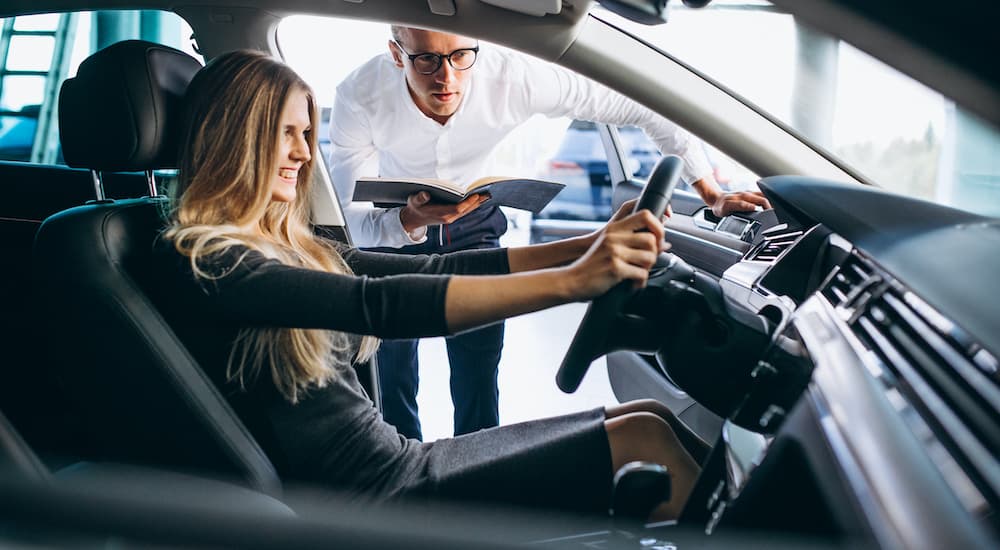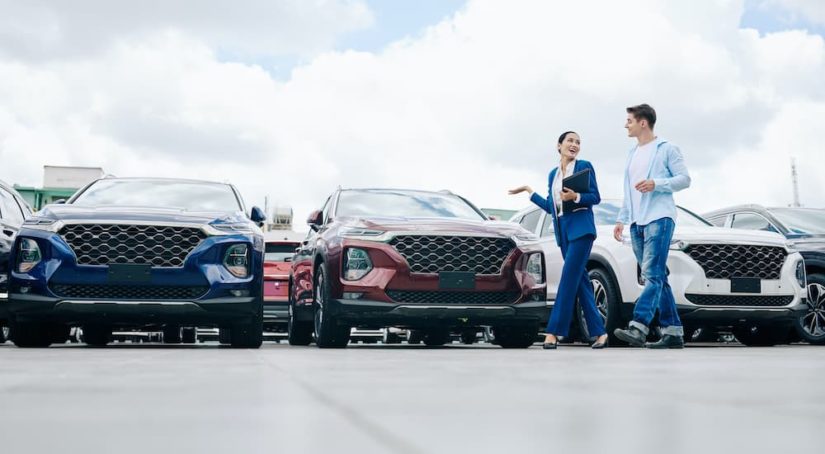If you’re in the market for a used car, it’s going to be a significant investment, so you need to do your homework to understand as much as you can about each used car and used car lot. But, if you’re willing to ask all sorts of questions, you’ll likely acquire the wisdom necessary to make a confident and comfortable choice when purchasing your used car. Shopping for a car can be a daunting task, especially when it is your first time buying, so use this as a guide to your shopping adventures.
Undriven Value in Used Cars
First, let’s highlight the many benefits of buying a used car over a new car. Used cars last a long time. On average, a great car can ride the roads for 11 to 12 years when the vehicle is taken care of. This is part of the reason why new vehicles depreciate at a rapid rate. The vehicle will lose a lot of value in the first few years; then, the value will decrease at a much lower rate as the car gets closer to the projected “end” of its value. The great news for the savvy used car buyer is that you’ll reap the benefits of the later years of the used car, where depreciation rates slow down, and there is long-term reliability remaining in its useful life.
Exceptional buys are out there in the used car market. For under $15,000, you can acquire a highly dependable, comfortable, carefree car that will last you for years. What’s more, you might find a brand, an edition, and luxury features that you would never consider because of cost had it been a new car.
The risk in a modern used car market is mitigated by many factors that favor the used car buyer. Used cars, especially if procured from a reputable used car lot, are in like-new condition. The used car dealer is bound to do professional inspections and repairs, so you’ll get peace of mind in your purchase.
Also, use data to drive your decision. The best source is a third-party vehicle history report. A report like CarFax is loaded with data and facts about the car’s history. You’ll want to review this report to understand its prior maintenance, history of damage, title status, ownership history, odometer readings, recalls, and inspections. Also, use third-party sites like Kelley Blue Book to see what the going price range is for the models you are looking at so you know you are getting a fair price.

Make Use of Used Car Lots
So if you’re convinced a used car is a smart, budget-friendly investment, you’ll want to seek out a used car dealer to make the purchase. Used car lots will reduce stress and manage the risk of buying a used car so you can worry about having fun and enjoy the car buying experience. A used car lot typically has an impressive inventory of diverse cars. So whether you want a solid sedan or a rugged SUV, they’ll likely have them onsite.
The staff at used car lots are also qualified, trained professionals. You can lean on a transparent team member to answer your questions. They’ll also know what information to tell you even if you don’t know the questions to ask. For example, a reputable used car dealer will show you the vehicle maintenance history, highlight their inspections and repairs, show you the odometer reading, and let you take a test drive. A used car dealer can also help you with financing options that fit your credit and income. They can help you determine your budget and find a good loan. They will also help you with all the necessary documentation.
Key Questions to Ask
So, if you have decided you want to purchase a used vehicle, here are 10 questions you should ask before you commit to a vehicle.
1. Can I see the CarFax?
Used cars have one thing in common – they have a history. Definitely ask the dealership for the CarFax report or a similar vehicle history, and have them review it with you. You need to know what potential problems the vehicle might have and any major repairs that have been done before you purchase it. If the dealership refuses to help you get a history report, go somewhere else.
2. What repairs/recalls were done to get it in ready-to-drive condition?
This goes hand-in-hand with the vehicle history report. Take the time to ask about any repairs that have been done on the vehicle. Remember, just because a vehicle has had repairs doesn’t mean it is bad. On the contrary, if it has had repairs, it should be good to go, but make sure you are informed. And don’t forget to ask about recalls the vehicle has had and if they were done (which they should be).
3. How much will the insurance be?
This is a question for your chosen insurance company. Remember, there are more costs to car ownership than just the sticker price, and insurance is a big one. Your dealer may be able to give you a rough estimate, but get a better one before you commit. Be sure to consider all the coverage options available and choose a plan with all the ones you need.
4. What warranties does/can it come with?
Sometimes a used vehicle is still under the original warranty, so you’ll want to verify this and how that transfers to you. You’ll also want to ask if the vehicle is Certified Pre-Owned and what warranties that gives you. Some dealerships may also offer their own warranty plans.
5. What options fit my budget?
Ask for the total cost with all of the fees and taxes included. The last thing you want to happen is you see the sticker price that is your max budget, you fall in love with the car, and then the final price is now out of your price range. Be smart and consider the money before you start looking, and don’t buy out of your budget.
6. What financing options apply to me?
Financing is probably the most stressful part of buying a vehicle, especially for first-time buyers. Ask for all of your options before you commit so you know you are getting the best deal.
7. Can I test drive it?
Test drives are your chance to really feel out the vehicle. Pay attention to how it drives, how sensitive the pedals feel, how well do the tech features work. Also, make sure you sit in the front and back seats to see how roomy and comfortable it is from all angles. Do a visual inspection. Get a feel for the car to ensure you will like it later on.
8. Can I get an independent mechanical inspection?
It never hurts to get a second opinion just to give yourself peace of mind before you buy.
9. How well does this vehicle handle bad weather?
This one is important if you live in an area that experiences bad weather. That could include heavy rainstorms, hurricane seasons, or snow and ice in the winter. Your car needs to be able to handle the area you drive in most. If you live in an area that gets a lot of ice and snow, we recommend asking about all-wheel or four-wheel drive options.
10. What is the gas mileage?
Much like insurance, gas is going to be a huge and continuous expense when you are buying a car. You’ll want to know roughly how much you might find yourself spending to fuel up. If you drive a lot, look for something with high gas mileage so that you can save some money.

Research, Research, Research
It is wise to do your research when shopping for a used car. This includes looking up comparable models online and asking a lot of questions at the dealership. A patient and professional used car lot will address your questions and concerns with transparent and precise responses.
Finally, rely on the facts. Data from history reports or as part of the vehicle itself should inform your opinion more than a rumor mill. Ultimately, you don’t need to be an expert, but you do want to know that you are getting a good deal and a good vehicle. So, take the time to do your research and ask questions.



